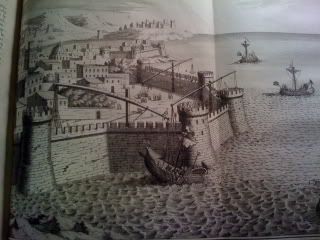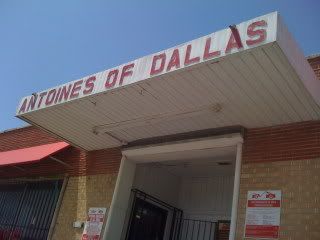I grew up in an antiquarian book shop and I have decades of experience estimating values on obscure titles. I’ve never had any trouble defending the prices I’ve come up with. Simple supply and demand … coupled with enough time to partner the right person with the right book, and, well, eventually, we’ll get the job done. However, with an auction, you lack that component of time. Auction houses have various ways to allow the public to preview the offered items. But there is always a deadline. When the final hammer falls, the item in question either sells or it doesn’t. (True, most auction houses have post-auction purchase opportunities for unsold items, but these are also time-based.) If the item sells, it’s likely to go very low, or very high. If only one person is bidding, it could go for well below the minimum estimate. If there are two or more bidders slugging it out, the item could go for an absurdly high amount. These extremes — whether embarrassingly paltry or irrationally overboard — find their way into published listings. These auction records (be they published as hard copies, e-books, or subscriber-only web-sites) don’t come cheap. This isn’t public information — it’s privileged and expensive. I’ve known many a rare book dealer who uses these auction listings to his and her advantage. Not to price a book, but to explain to the would-be seller that, “Sorry, sport, but it looks like your set of Chalmer’s British Essayists has never realized more than $400 at auction. I can give you a hundred and fifty for it.” He’s not lying. But the truth is, no savvy antiquarian book dealer is likely to sell that set for under $700. This is an example of an item that’s important, yet not terribly scarce. It will eventually sell in a rare book shop. However, truly scarce and desirable books can go for stupid amounts at auction. Especially if they’re unique. Original manuscripts. Or books inscribed from the author to another important person. Or, in the case of one item I cataloged the other day, the last book written by western artist Charles M. Russell with his own bookplate in it. It’s his own copy, dude! I estimated a price for the book at what I felt was rather low, hoping it will get a couple of serious collectors bidding it up. But really, who can tell? Maybe those two serious collectors will never hear about this auction.
What I can say is that I’ve seen some great books go damn cheap, (Sure, this is balanced out by the occasional crazy high prices.) Part of this is because of the shitty economy. But it’s also because auctions have always been places to pick up good deals on collectible books, especially if your tastes are a bit obscure.
Here’s an example. The other day I was cataloging a six volume set on military strategy. It’s in French, so it’s basically unreadable to me. But it’s crammed with wonderful folding engraved plates of battle scenes and depictions of siege engines. Cool stuff! I posted a photo of one of the plates on Twitter. My friend, Sandra, replied, asking how much the book costs. That’s a difficult question. Chevalier Folard’s Histoire de Polybe is a hell of a nifty item. I can’t recall what I estimated this at. Maybe eight to twelve hundred. And if that’s the case, with no reserve, the set will open at four hundred. But is that what it’s worth? You can probably pick up a nice set on the internet for three thousand. And if I had this set, I’d put two grand on it, and not blink. But in the auction world, it’s just not a rare set of books. Lost your chance to bid? Wait six months or a year, it’ll come back to an auction house. And so it has no real premium in the auction records. Maybe it is only worth four hundred dollars. Perhaps less….
The auction world is insane. I’m still trying to feel my way through this new realm. However, why some jackass would pay sixty thousand for a 1st edition of Harry fucking Potter simply grabs my stomach in all the wrong places. Sixty grand? WTF?!?! During these dark nights of the soul I hold the pillow tight with the thought that this likely is one of the signs of the coming apocalypse. We’re all going to burn for eternity … and we’ll deserve it. Fucking Harry Potter.
@@@@@
As I was leaving Dallas this afternoon, I took the ramp onto the Stemmons Freeway. I politely allowed a big truck in front of me. You see, I had an ulterior motive. I thumbed through the virtual buttons on my iPhone until I had the camera setting open. Dammit, it was fate! The truck in front of me was operated by this Dallas demolition company which has my favorite slogan.
“We Could Wreck the World.”
It’s that snide use of “Could.” Where’s Homeland Security? Sounds like a threat to me.
My second favorite slogan of a Dallas business is a document storage / disposal company (and here I’m too lazy to Google the name) — they suggest that some things are “Better Shred Than Read.”
That about sums up the things I like about Dallas.
Well, wait. I do have family in Dallas. I do indeed like them.
And, sure, there are still some cool places to visit in Dallas. I was pleased to see that Antoine’s sandwich place on Harry Hines is still getting by. And, yes, Joe, the big yellow tables and the po’ boys are as they were back when. A lovely time capsule.
@@@@@
Thursday morning I’m off to the airport. I’ll spend the weekend in LA, attending the annual NALIP conference. I only wish I were more prepared to pitch projects. I have several ideas to push, but I haven’t prepared the support material.
Speaking of projects:
While in Dallas I received a couple of phone calls advising that I submit a project proposal through the San Antonio Office of Cultural Affair’s website. I’d previously dismissed the proposal because it seemed I was ineligible. Not so, I learned.
And so, last Friday, I sacrificed five hours of good money at the auction house to hammer out an artistic film proposal. It was a messy rush, but I made the 4pm deadline. If the past is any indication of the future, this will be yet another grant that will slip through my fingers. Oh well … you gotta play to win. The truth is, I couldn’t have said no — I have a San Antonio nonprofit arts organization which will act as my fiscal sponsor. You can’t turn your nose up to partnership.
Creating the proposal took some time, sure, but the fact is I did indeed have a project in mind. It’ll run twenty to forty minutes. My current proposed budget is ten thousand. If the OCA approves the project, they will provide five thousand. Yep. Throw some money at me and I can make this happen.
Well, we’ll see.
Watch this space for mention of the experimental short film, “River Quartet.”



I always thought of the wrecking company’s slogan as being more wistful — a phrase that would be uttered dreamily as one gazed off into the distance.